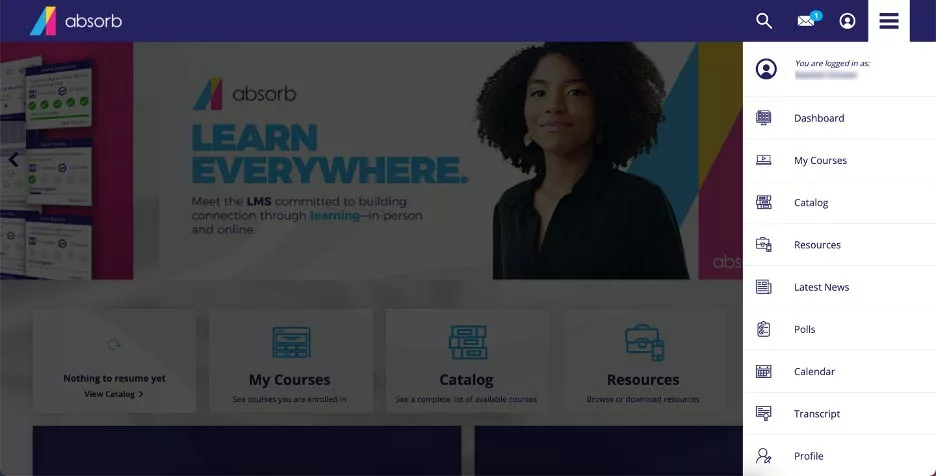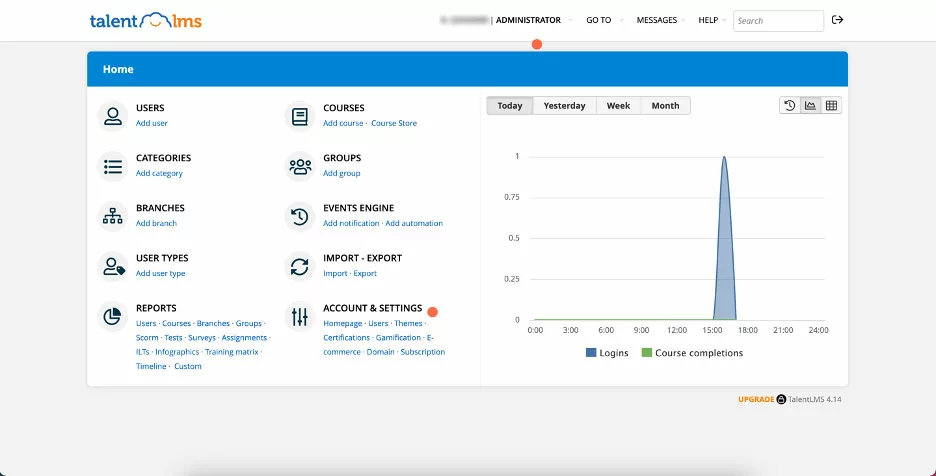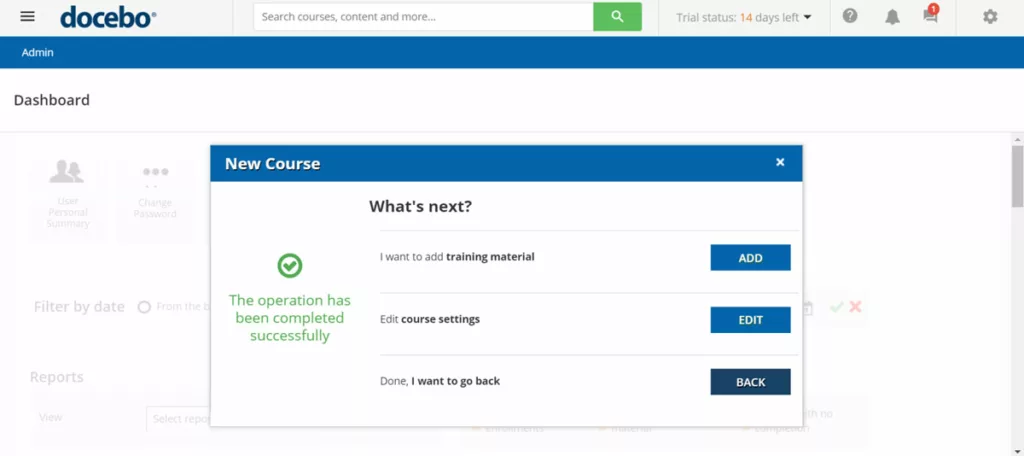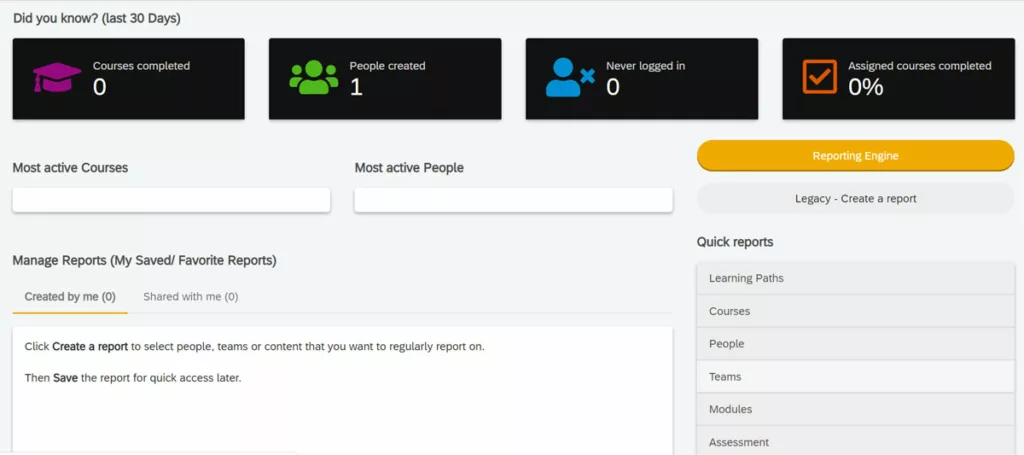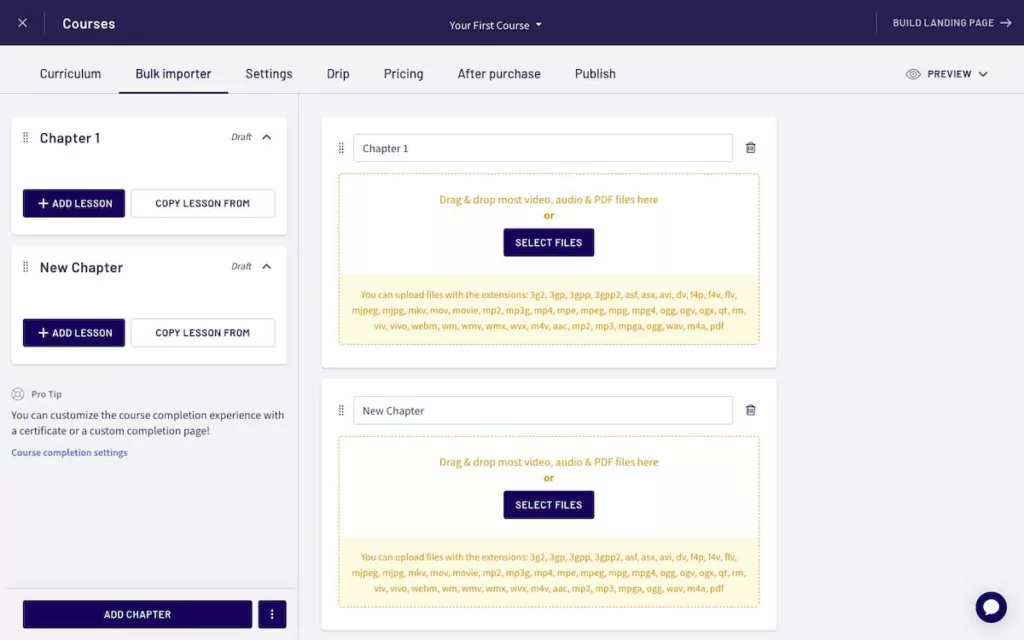Best Learning Management Systems for Small Businesses
Learning never stops, so we reviewed the top, well-known learning management systems to identify the best in 2024.
Fact Checked
A Learning Management System (LMS) should be on your radar if you’re a small business owner. As long as you choose a reputable solution, it can help you design and deliver a variety of courses to train your employees and meet your unique training needs. Since there are countless LMS platforms on the market, we did the heavy lifting for you and compiled this list of the best learning management systems for small businesses.
Our Top Picks
Learning Management Systems (LMS) Reviews
First, our team reviewed 85 learning management systems. From there, we narrowed down our findings to five of our top picks based on factors such as pricing, brand reputation, features, and customer service. For the full scoop on our evaluation process, check out our methodology.
Absorb LMS
Best LMS for Growing Businesses
Absorb LMS is an AI-powered learning management solution. It offers a wide variety of scalable features and powerful integrations.
TalentLMS
Best Free LMS for Small Business
TalentLMS is a learning management solution with a Forever Free plan. It’s intended to make the learning process enjoyable through live and in-person training, leaderboards, and gamification.
Docebo
Best LMS for Integrations
Docebo is an AI-powered, versatile learning management solution. It supports more than 400 tools and technologies.
Litmos
Best LMS for Reporting
SAP Litmos is a comprehensive cloud-based learning management solution with AI-powered video assessments and SCORM support. It’s highly intuitive for both entry-level trainers and experts.
Thinkific
Best for LMS for Online Courses
Thinkific is a well-known collaborative learning solution with more than 50,000 course creators and 25 million students. Unlike other tools, it’s specifically designed for small business owners who want to sell online courses.
Compare the best learning management systems side-by-side
| Brand | Best for | Starting Price | Free Option |
|---|---|---|---|
| Absorb LMS | Growing Businesses | Custom; Based on the number of learners and add-ons | No |
| TalentLMS | Free LMS Software | $69 per month | Yes |
| Docebo | Integrations | Custom; Based on Monthly Active Users | No |
| Litmos | Reporting | Custom; Based on the number of learners and add-ons | No |
| Thinkific | Online Courses | $36 per month | Yes |
What is a learning management system (LMS)?
A learning management system (or LMS) is a cloud-based tool that supports training and learning initiatives. These platforms usually consist of courses, content, quizzes, and reporting capabilities. They’re used by large and small businesses, human resource departments, and educational institutions.
With an LMS, you can organize training and development, set expectations, and track learner progress in real time. The right solution is essential if you’d like to boost employee retention and save on lost productivity and the cost of hiring replacements. When you consider the fact that companies spend a total of 600 billion due to employee turnover, a learning management system, which can help you retain top talent, is worthwhile.
What are the benefits of using LMS platforms?
There are a number of noteworthy benefits of learning management solutions.
First and foremost, a system can allow you to create educational content, train and onboard team members, customers, and partners more effectively, even when they’re spread out across different states or countries.
It may also support in-person learning through engaging tools like games and quizzes. Additionally, a learning management system can make it easier to organize all your training content and understand what’s working and what needs to be improved.
What are the key features of an LMS for small business?
These are the most important features to look for in an LMS for your small business:
- Scalability: A quality LMS should be able to grow with your business. This way, you won’t have to invest in new or additional tools as you expand or circumstances change. Absorb LMS is particularly good for scalability.
- Ease of use: An overly complex LMS can make your e-learning efforts more difficult rather than simplifying them. The best LMS should be a breeze to set up and use, regardless of technical knowledge or experience. TalentLMS is known for its ease of use.
- Affordability: As a small business, you don’t want to pay an arm and a leg for an LMS. Ideally, you’d opt for a learning management platform that is cost-effective but doesn’t compromise functionality or quality. A free version, such as the one from TalentLMS, may be the way to go if you’re a startup or a newer business.
- Content libraries and authoring tools: A good LMS will allow you to create new content courses and upload existing course content. This will automate course creation, so you don’t have to perform these tasks manually. Absorb LMS and TalentLMS offer impressive content libraries and authoring tools.
- Integrations: Seamless integrations are particularly important if you use other technologies and software. They can improve your workflow and reduce inefficiencies. Docebo, for example, allows for hundreds of integrations with popular tools.
- Reporting and analytics: A tool with comprehensive reporting features can help you understand how engaged your learners are and which training initiatives deliver optimal results. Litmos excels in the reporting department.
How much does a typical LMS cost?
Most learning management systems charge monthly or annual fees. These are typically based on the number of users and functionality.
You can expect more affordable rates if you pay on an annual rather than monthly basis. Also, note that some companies require you to request a quote and don’t publish their pricing information online.
Additionally, while free plans are uncommon with learning management software solutions, TalentLMS does offer a free version for up to five users and ten courses.
| Software Name | Monthly Cost |
|---|---|
| TalentLMS | $69 per month |
| Thinkific | $36 per month |
| Docebo | Pricing is based on the number of Monthly Active Users |
How to choose the best LMS software for your small business
We recommend following these steps to find the ideal LMS solution for your small business.
- Identify your learning needs.
- Meet with key stakeholders to discuss your goals with an LMS. Will you use it for employees, customers, or both? Will you need to track certifications for compliance purposes? Or are you selling an online course? From there, zero in on “must-have” features and “nice-to-have” features.
- Determine your budget.
- Calculate the number of users you expect to have on the platform so you can get an accurate idea of how much your LMS will cost. When you request a custom quote, be sure to ask about onboarding fees, data migration costs, or any add-ons that aren’t included in the plan you choose. Remember to consider how an LMS might save you money in the long run – whether it’s retaining top talent with great onboarding and training or cutting costs on in-person training for distributed teams.
- Shop around.
- Not all LMS systems are created equal. That’s why it’s in your best interest to shop around and compare all your options. Consider the price, reputation, features, and customer support of each solution you explore. We recommend starting with the reputable companies on our list, narrowing it down to your top two or three, and scheduling a free demo with each one to get a customized quote.
- Try it before you buy it.
- Fortunately, many vendors will allow you to try out an LMS platform through a free trial, free demo, or free plan. Once you find a provider that meets your needs, do a test drive to make sure they’re the right fit, or ask for current customer references to hear directly from users like you who have direct experience with the platform.
Learning Management Systems Frequently Asked Questions (FAQ)
What’s the difference between a learning management system and a training management system?
A training management system (TMS) is a tool for the trainer, which can be an employer, college, or university, and is more focused on the administrative and logistical aspects of training delivery. It is used by training providers to manage and organize instructor-led training, workshops, and seminars. A learning management system (LMS), on the other hand, is used to deliver courses and learning materials to students or employees.
An LMS is more focused on the e-learning aspect and managing the learning content and learner progress, while a TMS is geared towards managing the logistical and administrative aspects of training delivery. When used together, the two systems can complement each other in delivering a comprehensive training and education strategy.
What is a learning management system used for?
A learning management system serves as a place to create and manage training and education programs. It can help employees, customers, and vendors get up to speed on your products, services, processes, and the other important aspects of your business.
Can an LMS help with onboarding?
Yes – an LMS can streamline and simplify the onboarding process for employees, customers, and partners. You may use it to create courses, assign them, and measure progress. With an LMS, you can save a lot of time and money on your onboarding efforts.
What is the best LMS for small businesses?
The best LMS for a small business depends on factors like your budget, desired features, and goals. Here are the top providers we recommend for various scenarios:
- Absorb LMS -Best LMS for Growing Businesses
- TalentLMS – Best Free LMS for Small Businesses
- Docebo – Best LMS for Employee Training
- Litmos – Best LMS for Reporting
- Thinkific– Best for LMS for Online Courses
Methodology: How we chose the best learning management systems for small businesses
After curating a list of 85 learning management systems, we honed in on 15 of the most popular solutions for small businesses. From there, we chose our favorites based on reputation, features, pricing, and customer support. We work with vendors to gather information and confirm it through
- Company interviews
- Customer and expert reviews
- Vendor and parent company websites
We scored companies on a scale of 1 (poor) to 5 (excellent) across the following criteria, each worth 25% of our total score:
- Features: We prioritized platforms that offer a variety of useful features for small businesses, such as social learning, learner testing and reporting, and content library and management.
- Pricing transparency: Since most small business owners are on a budget, transparent, reasonably priced services are important to us. We also gave bonus points to providers with free trials and those who clearly list their monthly and annual fees on their sites.
- Customer support: We looked for learning management solutions that offer support via a number of channels, such as phone, email, live chat, and personalized onboarding.
- Brand reputation: We dove deep into the feedback from current and former customers for each company. Reviews and ratings from reputable review sites were highly considered.







